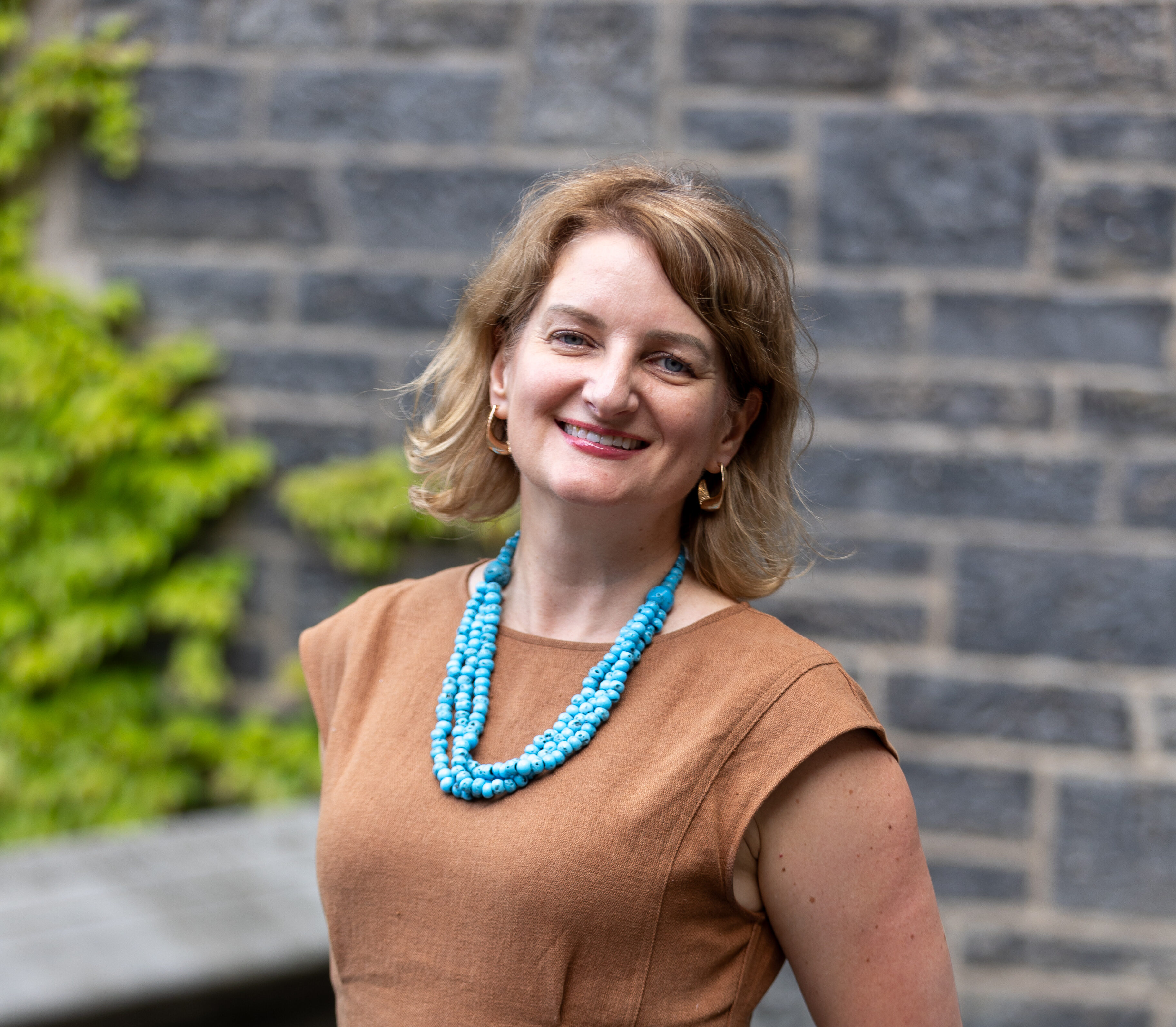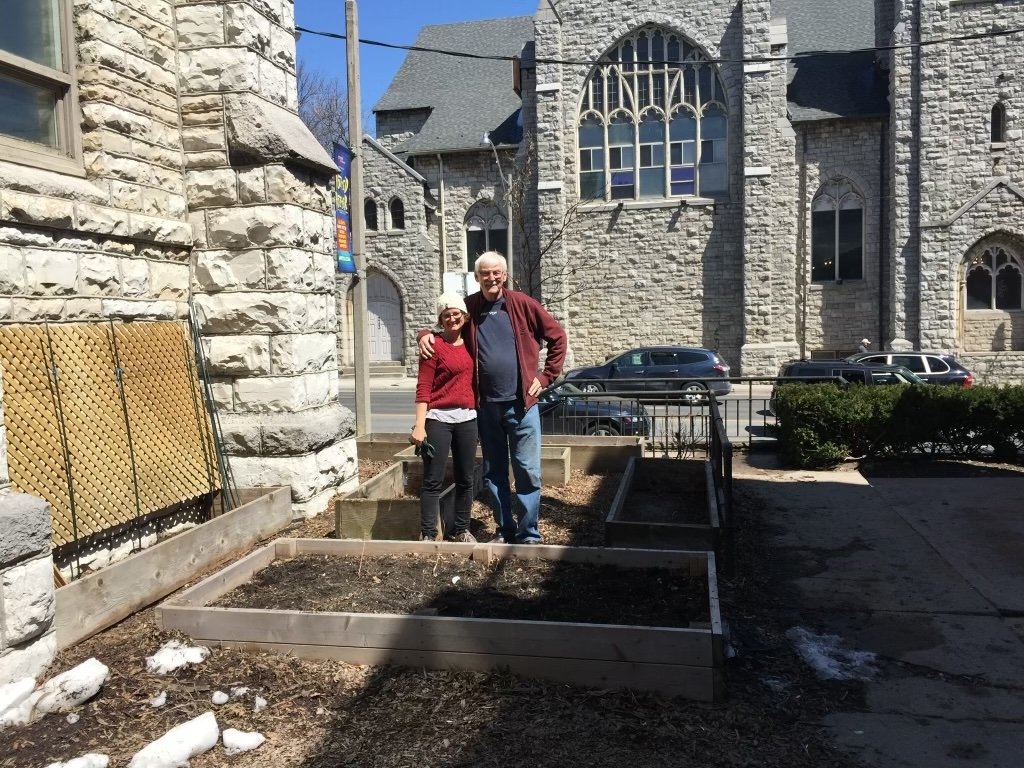
Professor Jen Gommerman (’93; ’98 PhD, U of T) is Chair of the Department of Immunology at U of T. She currently holds a Tier 1 Canada Research Chair in Tissue-Specific Immunity; serves as Immunology Pillar co-lead for CoVaRR-Net, a pan-Canadian consortium studying variants of concern; and is the co-director of HI3, a consortium of 85 partners working to increase biomanufacturing capacity and pandemic preparedness in Canada. We caught up with Gommerman and learned about her career as a scientist and the role Trinity played in it, and the advice she would offer today’s science students.
It’s been over 30 years since you graduated from Trinity. Are there any memories or experiences that particularly stand out for you today?
JG: I was the first in my family to go to university, so the whole concept was new. Living in residence was a big change, and on top of that Trinity has especially unique traditions – high table dinners and robes felt magical to me. Oh, and I played flag football on the St. Hilda’s Smashers. That was fun!
I chose microbiology as my major in second year, and I remember being really interested in a section of one course about how the immune system copes with parasites. And then in third year I took the immunology course, which created my “aha” moment. I completely fell in love with immunology. It felt like a story, about how we deal with infection as mammals. It fascinated me – it still does. So I switched majors in third year and haven’t looked back.
There’s a story of the immune system? Can you talk more about that?
JG: Sure. Most people know there’s a blood system that runs through the whole body. What many don’t realize is that there’s an adjacent lymphatic system running through your body as well, and it’s constantly surveilling for pathogens. And there’s a huge, complex network of different types of white blood cells that make up our immune system. Unlike red blood cells, the white blood cells integrate into our tissues, almost everywhere in the body.
My research is focused on how the gut impacts our immune system. The gut is a huge reservoir of our immune cells, and our gut microbiome plays a big role in programming those cells and the role they play in certain diseases. We published a paper on this in 2019 in the journal Cell, and have been continuing our research since then. The pandemic sidelined that research for a while, though.
What was the COVID pandemic like for you as an immunologist?
JG: Immediately, most research labs were closed. However, those labs that could make contributions to studying the immune response to the virus could have limited numbers of lab members come in and work on pandemic-related research. We were looking at an antibody called IgA, which is transported in our bodily secretions, including saliva. When the pandemic hit, everyone was scrambling to develop tests to look for antibodies in the blood. And I thought we needed to look at whether or not there are antibodies being produced in our saliva, since the virus was entering through the nose and mouth.
I worked with my colleagues Anne-Claude Gingras and Allison McGeer at Mount Sinai Hospital in Toronto to develop COVID tests for saliva and for blood serum. In summer 2020 we published the first paper to show a positive correlation between antibody levels in the serum and saliva in COVID-19 convalescents. That paper has been cited a lot and we learned a lot about antibody response from it.
What challenges have you faced as a woman building a career in science?
JG: I started at Trinity in 1989. That was the year of the Montreal Massacre. It was incredibly important to have strong female role models, and central for me was Dean Rowlinson. She was a wonderful example of a woman in STEM, and was way ahead of her time. [Editor’s note: Elizabeth Rowlinson was the first Dean of St. Hilda’s College, and the fifth Dean of Women Students at Trinity College. She served from 1978-1991.]
When I had my children, I dealt with what is one of the biggest hurdles for women in STEM, which is how to keep the momentum of a career going while running a research lab. Science doesn’t stop, and it takes a lot of juggling to keep the research going. There’s some progress being made in the field in developing supports for scientists who also want to have families, but there’s still a long way to go.
I get asked a lot by science trainees how to balance their personal lives with their research. It isn’t easy, and there isn’t one way to do it. But I do believe if you want a career in science and a family, it is possible to have both. It also helps to have a supportive spouse.
What advice do you have for today’s science students?
JG: Students, especially in this post-COVID era, are very cautious. If you’ve discovered what you love, be persistent. It may feel risky, for example, to pursue a post-doctoral position while your friends are settling down and buying houses, but if science is your passion you should do it. And that requires you to believe in yourself. Don’t underestimate your abilities – if you’re coming from Trinity, you’re a smart cookie.
When science students ask me what kinds of courses they should take, I tell them to take an English course. And read a lot. Because down the road, being able to tell the story of your science is going to be incredibly important. And it may take a while, but when you find your voice as a scientist, people are going to enjoy reading your papers.
What do you do outside of work?
JG: I love community gardening. In fact, one of the grants I’m most proud of is the $4,000 City of Toronto Pollinator Grant that I helped to secure to plant a pollinator garden — a joint initiative between the Church of the Messiah, Unicorn Daycare and the Avenue Road Food Bank. Check it out on the southwest corner of Avenue and Dupont in Toronto. I tell my students all the time that a community garden checks all the boxes – it’s outside, it’s active, it’s with other people, and it’s meditative – and when you have an intense day job, it’s nice to immerse yourself in something that’s completely different. I also sing in a choir, and that checks all the boxes for me, too.
– In conversation with Jennifer Matthews

